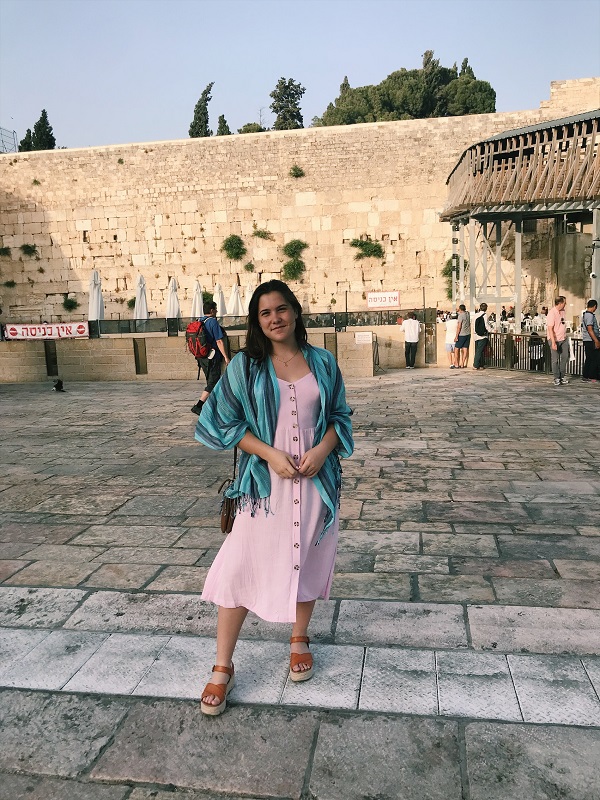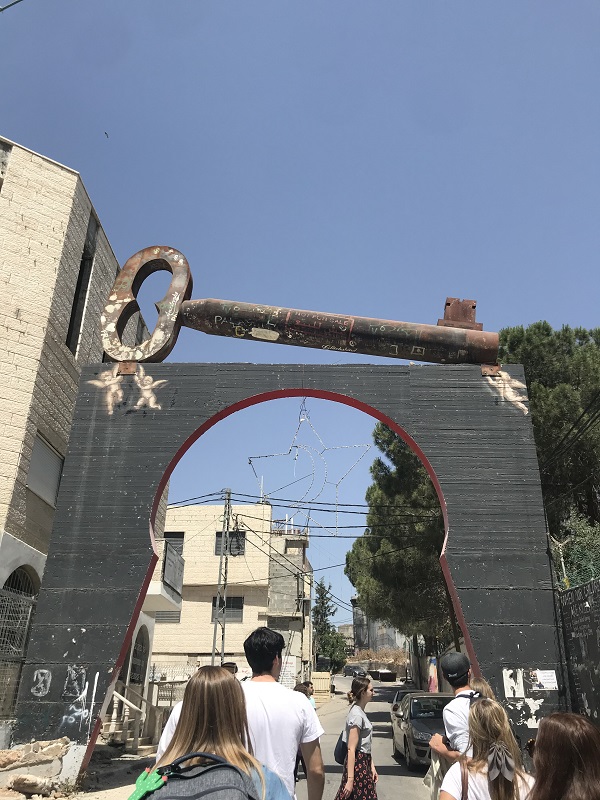Keeping up with Altmans: Studying the Arab-Israeli Conflict in Jerusalem

Reagan at the Western Wall.
Reagan Orloff of the 2021 cohort recently participated in the Stacy Mandel Palagye and Keith Palagye Program for Middle East Peace. Students who participate in this summer program travel to Israel to learn about the Arab-Israeli conflict firsthand. Reagan took classes and developed a research project during the course of the program. She sent us an update when she returned home:
"We were stationed in East Jerusalem mere minutes away from the separation barrier separating the city from the West Bank. This area, in many ways, is the heart of the conflict. 1) East Jerusalem is actually not within the Green Line (Israel’s 1948 borders), so it is disputed whether Israel has sovereignty over it: Israel of course says it does, while Palestinians consider it occupied territory. 2) It is home to the Old City; with some of the most important religious symbols for Jews and Muslims, control of the Old City is one of the most difficult & explosive negotiating points in the peace process. 3) Its two largest demographic groups are ultra-orthodox Jews and Palestinians (lots of tension). These Palestinians, however, are not citizens of Israel. Instead, Israel has given them a…complicated status known as 'Permanent Resident'.
"My individual research project focused on this group of people, Palestinian Permanent Residents, and their access to and quality of service within two important social institutions: the education system and the healthcare system. I got to personally interview several people in Israel, including professors at Hebrew University who have conducted related research, Palestinian permanent residents, the deputy mayor of Jerusalem, a representative from ACRI (Association for Civil Rights in Israel), university students, and more.
"Our group research was incredibly impactful. One day we would hear from a religious Israeli settler, and the next a Palestinian living in a refugee camp…a wide range of opinions. Some days we took day-long tours in areas like Palestinian East Jerusalem, Israeli kibbutzim, coexistence living projects, and the West Bank. Other days, we were in the Truman Research Institute hearing from individuals and NGOs. One of the most striking parts for me was learning about the education both sides receive. Many Israelis we heard from told us they never learned in school about the roughly 800,000 Palestinians expelled from their homes in 1948, while Palestinians said they were never taught about the Holocaust and, if they were, it was taught as a 'propagated lie by the Jews to excuse their treatment of Palestinians.' Both sides have historical and national narratives that either ignore or invalidate the other, which is really tragic.
"However emotionally draining the program was, it also reinforced my passion for research and my understanding of its importance. As cliché as it sounds, knowledge is power, and disseminating knowledge about the century-long conflict to two populations with holes in their understanding can hopefully get us closer and closer to an eventual solution."

Entrance to Aida Camp
